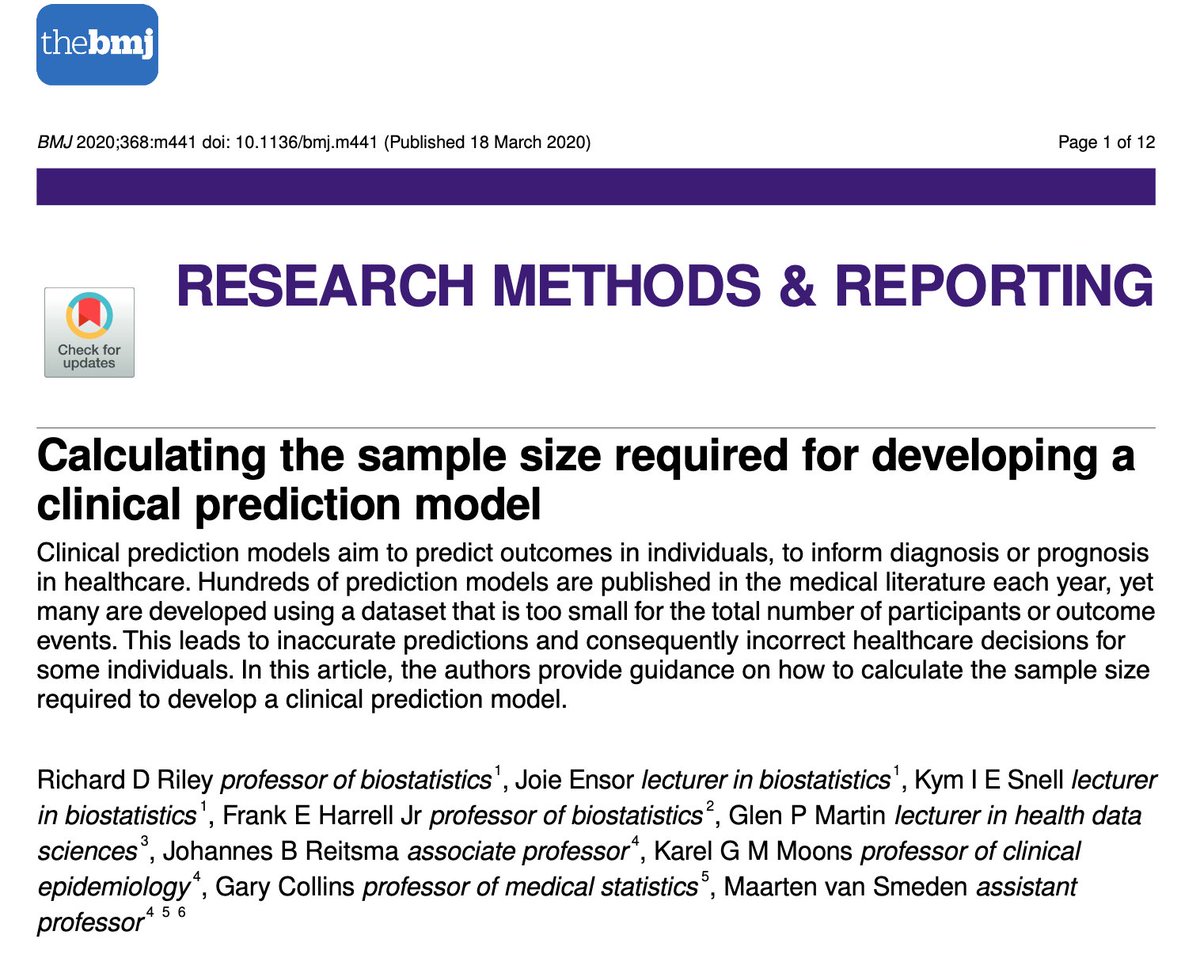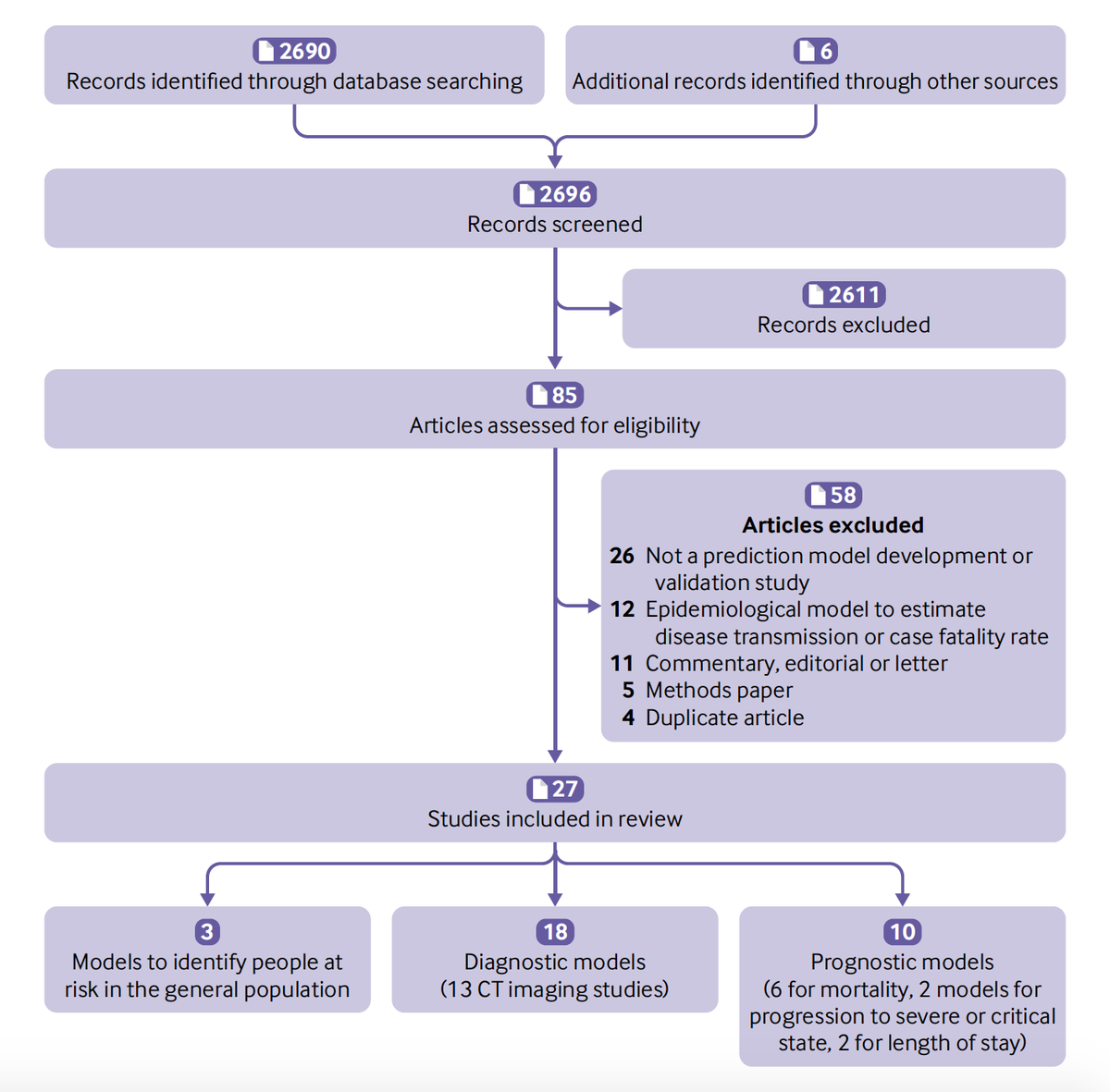
Another year, another personal TOP 10 favorite methods papers
https://twitter.com/MaartenvSmeden/status/1209059762777870336
Disclaimer: this top 10 is just personal opinion. I’m biased towards explanatory methods and statistics articles relevant to health research, particularly those relating to prediction
The order in which the articles appear is pseudo-random
The order in which the articles appear is pseudo-random
1) The first one is related to the pandemic. Title and subtitle give away the conclusions, but the arguments are particularly well put
science.sciencemag.org/content/368/64…
science.sciencemag.org/content/368/64…

2) This article has gotten a lot of attention on this website. For good reasons IMHO
nature.com/articles/s4146…
nature.com/articles/s4146…

3) This year we have seen a couple of new important reporting guidelines, including the AI extension of CONSORT
nature.com/articles/s4159…
nature.com/articles/s4159…

Several other reporting guidelines related to AI have recently been published (e.g. SPIRIT-AI nature.com/articles/s4159…) and others have been announced (e.g. TRIPOD-AI thelancet.com/journals/lance…). More details on reporting guidelines are found on equator-network.org/reporting-guid…
4) This paper may one day become a methods classic (like Breiman's Two Cultures and Shmueli's To Explain or to Predict, maybe?)
tandfonline.com/doi/full/10.10…
tandfonline.com/doi/full/10.10…

5) Thinking clearly about the target of prediction: it may not be as easy as it seems. The "predictimand" framework may help
link.springer.com/article/10.100…
link.springer.com/article/10.100…

6) Can causal thinking help with developing prediction models? This article argues it can
bmcmedresmethodol.biomedcentral.com/articles/10.11…
bmcmedresmethodol.biomedcentral.com/articles/10.11…

8) Probably one of the most depressing methods messages: widely advocated shrinkage approaches may not work when you need them most: with small sample sizes
sciencedirect.com/science/articl…
(See also this related work: journals.sagepub.com/doi/abs/10.117…)
sciencedirect.com/science/articl…
(See also this related work: journals.sagepub.com/doi/abs/10.117…)

9) This study is a real eye opener (pun intended)
https://twitter.com/MaartenvSmeden/status/1256897593705222145?s=20
10) The last of this list comes from the beginning of the year. A nice read about reproducibility of ML
doi.org/10.1001/jama.2…
doi.org/10.1001/jama.2…

Not part of this list, but worth mentioning that several Living Reviews have published in high impact medical journals. One of the most interesting methods developments of 2020 if you ask me, but perhaps I am biased
bmj.com/content/370/bm…
bmj.com/content/370/bm…

• • •
Missing some Tweet in this thread? You can try to
force a refresh







